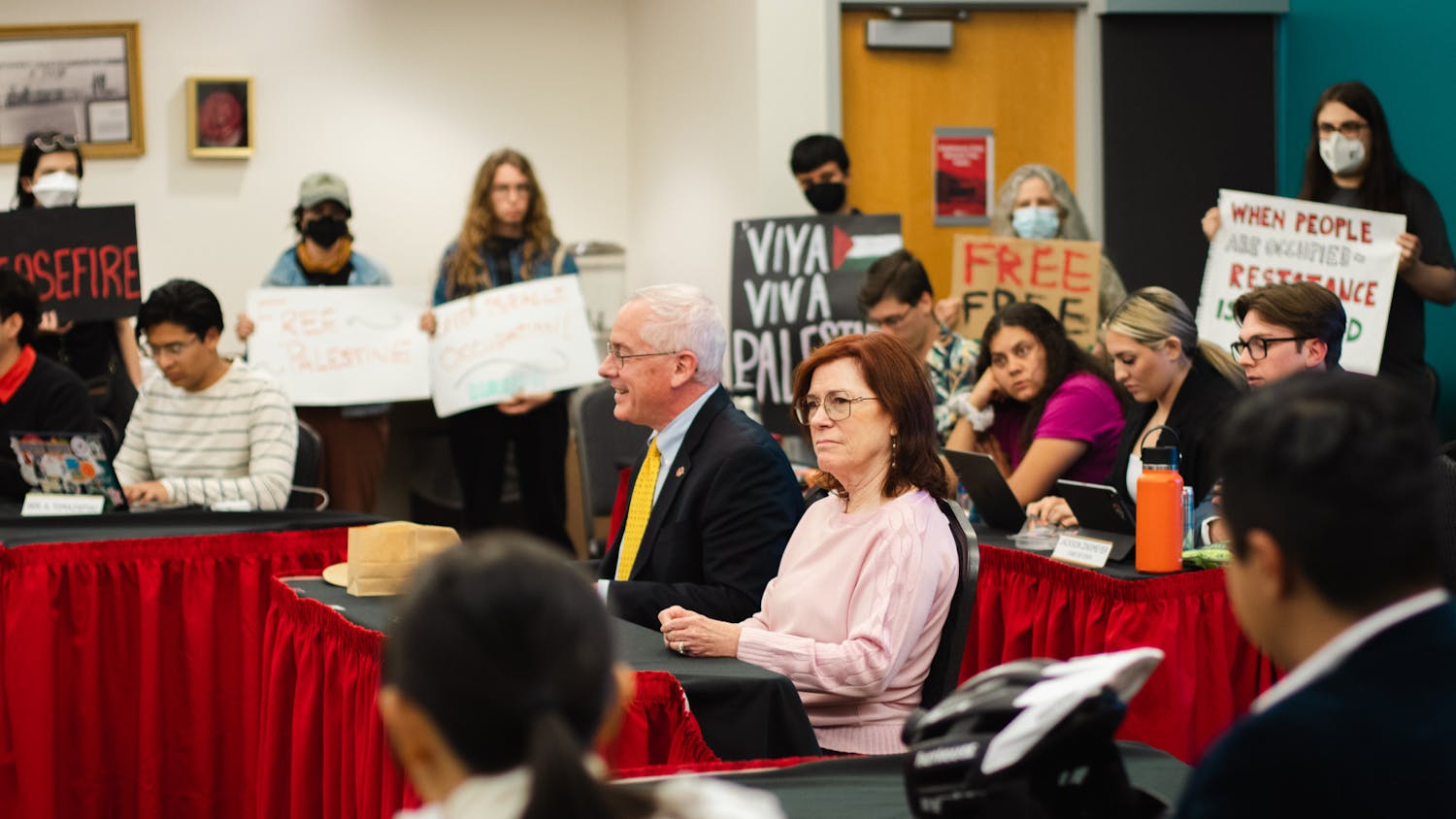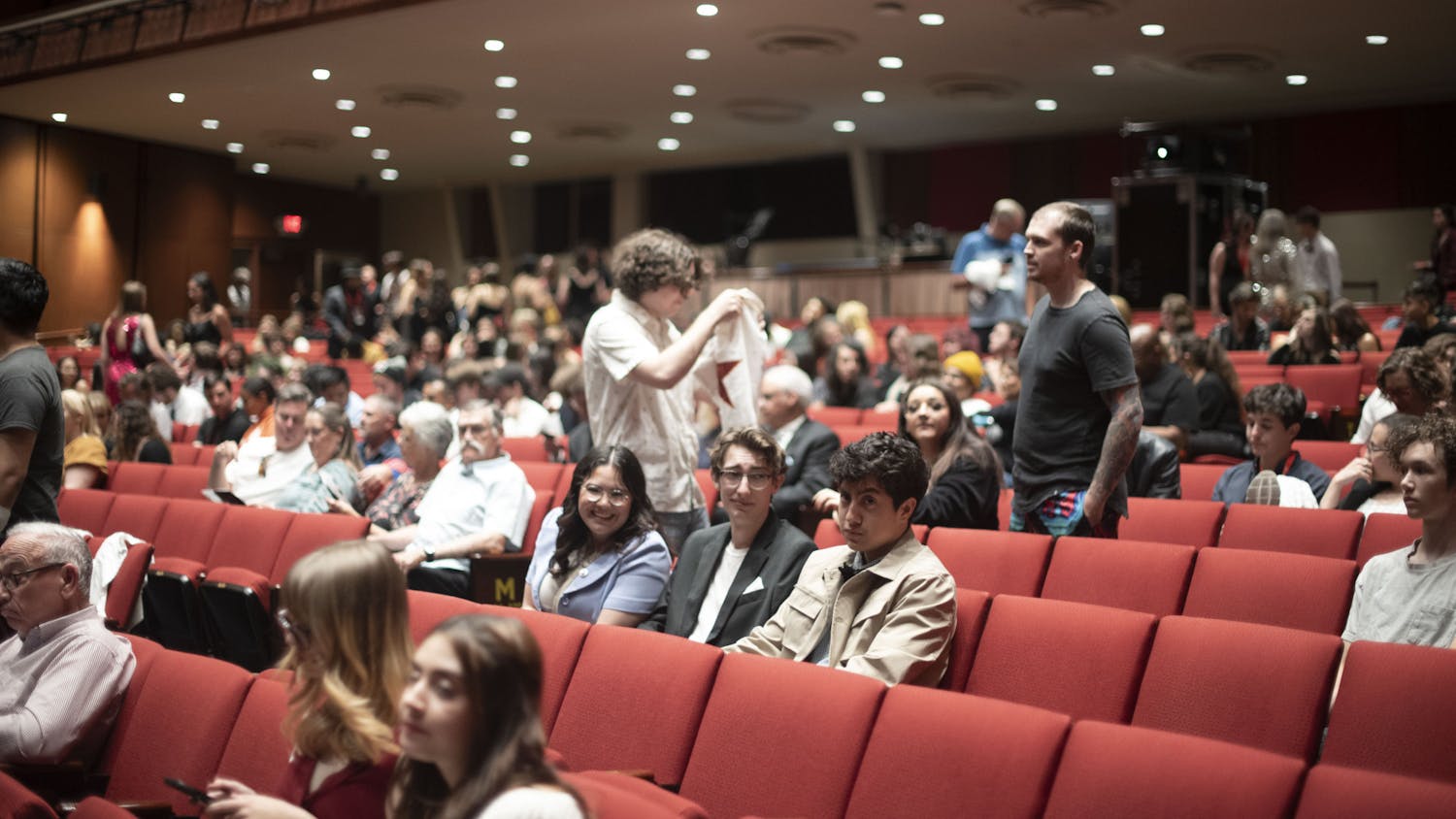The power of art as a form of activism was discussed at the University of New Mexico’s Art Museum this past Thursday among a panel of three artists and guest presenters who came to give insight on the matter.
The crowd of people took their seats in the upper base room of UNM’s Art Museum, with the essence of freedom pride in the midst. A glimpse of the “For Freedoms” interactive art exhibit acted as a backdrop for the three panelists, reflecting the discussion about to ensue that evening.
Sheri Crider, a visual artist and owner of Sanitary Tortilla Factory was present, along with Daryl Lucero, an Isleta artist, educator, facilitator and food grower. Gabrielle Uballez was another panelist as well, and currently serves as the Minister of Collaboration and Activation for the U.S. Department of Arts and Culture.
“A place that I think we can start is that we acknowledge that we are on the traditional land of the Pueblo people,” said Crider to start off the night.
Lucero seconded that statement, and mentioned how people should recognize that we are on Tiwa territory.
“My perspective on what I’ll be presenting is truly rooted in me being from Isleta Pueblo,” Lucero said. “Especially considering institutions, museums, galleries, the art world, my experience and perspective ties back into my ethnicity.”
Lucero discussed how it can be challenging in a modern society where the institutions, museums and galleries in our country have stress woven into their infrastructure — which he said makes it exceedingly difficult for people to contribute a positive voice for change, rather than presenting art that reflects the negative aspects of their lives.
“As an indigenous artist interacting with these spaces, having an authentic experience and trying to voice something that is remotely reflective of me being indigenous, often times doesn’t get into that space,” Lucero said.
The talk then transitioned to Uballez, and she echoed the challenges underrepresented peoples face not only in the world in general, but in the world of art specifically.
“Of every foundation dollar in the U.S, 11 cents goes to the arts. Five and a half cents goes to organizations with budgets more than five million dollars. One cent goes to organizations serving underrepresented communities,” Uballez said.
The collective message being projected from these artists was, in order for authentic change to be enacted, creating a sense of pride and responsibility to struggling art institutions locally and around the country serves as a voice for those who need it most. They added that these ideas need to be fostered among people at a large scale.
There were different ways discussed on how people can come together to push positive change within the art world. The panelists discussed different ways that people can support artists and projects that engage in activism.These include arts organizations that explicitly serve communities of color and other underrepresented peoples and social justice organizations that are using arts and culture as a central organizing strategy.
Get content from The Daily Lobo delivered to your inbox
After the artists shared their experiences and knowledge about art acting as a form of activism, people were invited to ask panelists questions, and make statements about their views on social change through art.
Another message that flowed through the talk was the essence of community art, and how it can be built for the people involved. The Q&A at the end of the panel discussion highlighted that idea, offering a collaborative space for people to listen to others’ different thoughts, opinions and questions on the many complexities that come within art as activism.
“I always believed that I didn’t belong in very many places in the world,” Crider said. ”What an amazing transformation of culture we might create where people feel like they belong.”
Macey Rose is a freelance reporter with the Daily Lobo. She can be contacted by email at culture@dailylobo.com or on Twitter @maceyrae9.





